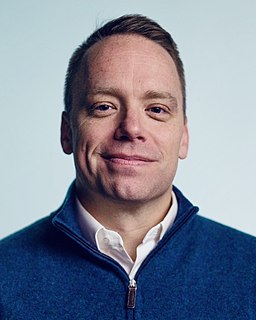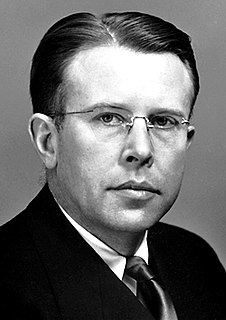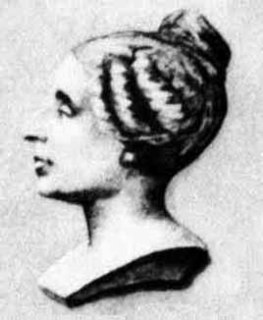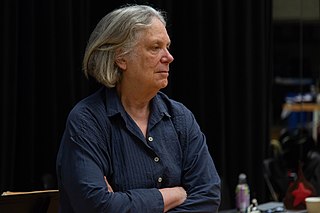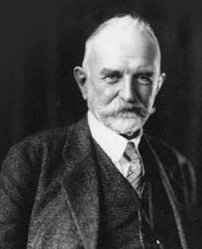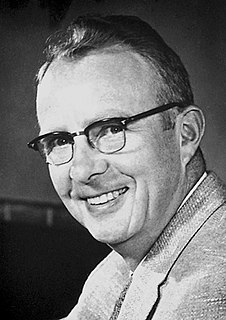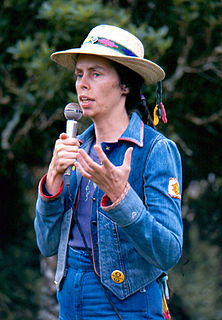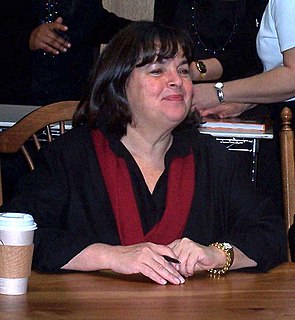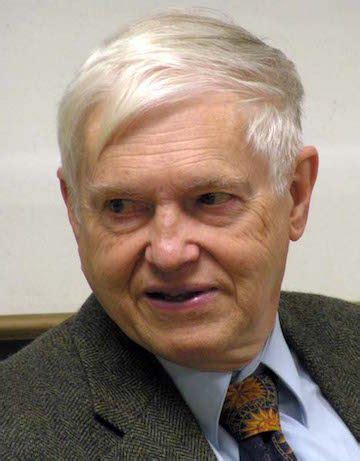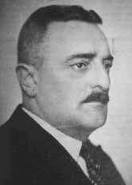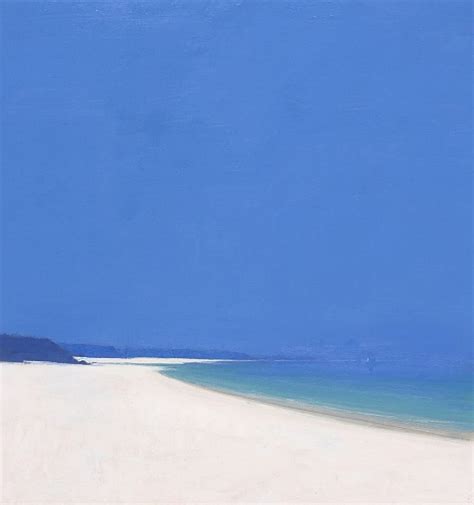Top 1200 Scientist Quotes & Sayings - Page 18
Explore popular Scientist quotes.
Last updated on December 25, 2024.
When asked about which scientist he'd like to meet, Neil deGrasse Tyson said, "Isaac Newton. No question about it. The smartest person ever to walk the face of this earth. The man was connected to the universe in spooky ways. He discovered the laws of motion, the laws of gravity, the laws of optics. Then he turned 26.
It's not my fault Snow didn't have any other options coming out of high school. If going to college gets you a career backup goaltender job, and my route gets you a thousand points and a thousand games, and compare the two contracts, it doesn't take a rocket scientist to figure out whose decision was better.
Scientific wealth tends to accumulate according to the law of compound interest. Every addition to knowledge of the properties of matter supplies the physical scientist with new instrumental means for discovering and interpreting phenomena of nature, which in their turn afford foundations of fresh generalisations, bringing gains of permanent value into the great storehouse of natural philosophy.
What the scientists have always found by physical experiment was an a priori orderliness of nature, or Universe always operating at an elegance level that made the discovering scientist's working hypotheses seem crude by comparison. The discovered reality made the scientists exploratory work seem relatively disorderly.
I think I set myself on a course to become a scientist around about the time that Carl Sagan's 'Cosmos' series was on television, and there really was no going back for me at that point, and then I went on to study space science and then get my Ph.D., then go aboard and work in the European Space Agency.
... what the artist or creative scientist feels is not anxiety or fear; it is joy. I use the word in contrast to happiness or pleasure. The artist, at the moment of creating, does not experience gratification or satisfaction... Rather, it is joy, joy defined as the emotion that goes with heightened consciousness, the mood that accompanies the experience of actualizing one's own potentialities.
When you start digging into things like character, though, the notion that people have high character or low character is very strong. What's crazy is that my thinking is not a new insight. The very first large-scale study of character, still one of the largest ever, was done in the early 1900s by Hugh Hartshorne, an ordained minister and a scientist.
A paradigm shift is the best a scientist can hope for. Whenever I smell an opportunity like that, I go after it. You have a new discovery that something's working in a different way than you thought. And this is particularly true in molecular and cell biology, which is structural biology and has the least potential for controversy and partisanship among the biological scientists. You're dealing with a concrete object that's either there or not there.
The day when the scientist, no matter how devoted, may make significant progress alone and without material help is past. This fact is most self-evident in our work. Instead of an attic with a few test tubes, bits of wire and odds and ends, the attack on the atomic nucleus has required the development and construction of great instruments on an engineering scale.
The greater the scientist, the more he is impressed with his ignorance of reality, and the more he realizes that his laws and labels, descriptions and definitions, are the products of his own thought. They help him to use the world for purposes of his own devising rather than understand and explain it.
In describing the honourable mission I charged him with, M. Pernety informed me that he made my name known to you. This leads me to confess that I am not as completely unknown to you as you might believe, but that fearing the ridicule attached to a female scientist, I have previously taken the name of M. LeBlanc in communicating to you those notes that, no doubt, do not deserve the indulgence with which you have responded.
To be a scientist you have to be willing to live with uncertainty for a long time. Research scientists begin with a question and they take a decade or two to find an answer. Then the answer they get may not even answer the question they thought it would. You have to have a supple enough mind to be open to the possibility that the answer sometimes precedes the question itself.
When I first went to Hubble, as an astronomer and as a scientist, it was a dream come true. And as an astronaut, the Hubble missions are premiere missions because Hubble is so important to science, so important to humanity, that it's just a very special event. But as an astronomer, it was sort of the holy grail of missions.
Fame is also won at the expense of others. Even the well-deserved honors of the scientist or man of learning are unfair to many persons of equal achievements who get none. When one man gets a place in the sun, the others are put in a denser shade. From the point of view of the whole group there's no gain whatsoever, and perhaps a loss.
To the scientist Nature is a storehouse of facts, laws, processes; to the artist she is a storehouse of pictures; to the poet she is a storehouse of images, fancies, a source of inspiration; to the moralist she is a storehouse of precepts and parables; to all she may be a source of knowledge and joy.
When I was little, my parents really only wanted me to be a scientist or a doctor; they had never even heard of law school. I think even these days if you were to tell your mother you want to be a fashion designer, or an artist or a writer, a lot of Asian parents would be alarmed because they don't think that's a secure career.
As a Christian, but also as a scientist responsible for overseeing the Human Genome Project, one of my concerns has been the limits on applications of our understanding of the genome. Should there be limits? I think there should. I think the public has expressed their concern about ways this information might be misused.
There were no pre-adamic men in the line of Adam... I am not a scientist. I do not profess to know anything but Jesus Christ, and him crucified, and the principles of his gospel. If, however, there are some things in the strata of the earth indicating there were men before Adam, they were not the ancestors of Adam.
I'm convinced that a controlled disrespect for authority is essential to a scientist. All the good experimental physicists I have known have had an intense curiosity that no Keep Out sign could mute. Physicists do, of course, show a healthy respect for High Voltage, Radiation, and Liquid Hydrogen signs. They are not reckless. I can think of only six who have been killed on the job.
I wanted to be a scientist. My undergraduate degree is in biology, and I really did think I might go off and be some kind of a lady Darwin someplace. It turned out that I'm really awful at science and that I have no gift for actually doing science myself. But I'm very interested in others who practice science and in the stories of science.
Pregnant
and birthing mothers are elemental forces, in the same sense that
gravity, thunderstorms, earthquakes, and hurricanes are elemental
forces. In order to understand the laws of their energy flow, you have
to love and respect them for their magnificence at the same time that
you study them with the accuracy of a true scientist.
On any Tuesday morning, if asked, a good working scientist will tell you with some self-satisfaction that the affairs of his field are nicely in order, that things are finally looking clear and making sense, and all is well. But come back again on another Tuesday, and the roof may have just fallen in on his life's work.
I am a man and alive. For this reason I am a novelist. And, being a novelist, I consider myself superior to the saint, te scientist, the philosopher, and the poet, who are all great masters of different bits of man alive, but never get the whole hog....Only in the novel are all things given full play.
When a philosopher, scientist, or psychologist discusses the discrepancy between the actual and the ideal, he or she attempts to convince us with the tools of discursive thought ... An artist does it differently ... their primary approach is different, even though both groups, if you will, are investigating the actual, the ideal, and the discrepancy in between.
I feel that, in a sense, the writer knows nothing any longer. He has no moral stance. He offers the reader the contents of his own head, a set of options and imaginative alternatives. His role is that of a scientist, whether on safari or in his laboratory, faced with an unknown terrain or subject. All he can do is to devise various hypotheses and test them against the facts.
Strong, deeply rooted desire is the starting point of all achievement. Just as the electron is the last unit of matter discernible to the scientist. DESIRE is the seed of all achievement; the starting place, back of which there is nothing, or at least there is nothing of which we have any knowledge.
At 5 years old, I saw 'Abbott and Costello Meet Frankenstein,' and I was so scared when Costello sat himself down in the lap of the monster, not realizing where he was. My friends teased me. They were older, 8 years old. And my goal was to become a mad scientist and get back at them. And here I am, mad as hell!
Running is a way for me to relax. With one hour of intense running, I can get a lot of physical exercise. I can relax my body. I feel a tension in my muscles when I don't run. In that sense, I need to get out a few times a week in order to do my work as a scientist, which involves a lot of sitting still.
For the theory-practice iteration to work, the scientist must be, as it were, mentally ambidextrous; fascinated equally on the one hand by possible meanings, theories, and tentative models to be induced from data and the practical reality of the real world, and on the other with the factual implications deducible from tentative theories, models and hypotheses.
Nevertheless, just as I believe that the Book of Scripture illumines the pathway to God, so I believe that the Book of Nature, with its astonishing details-the blade of grass, the Conus cedonulli, or the resonance levels of the carbon atom-also suggest a God of purpose and a God of design. And I think my belief makes me no less a scientist.
The only ethical principle which has made science possible is that the truth shall be told all the time. If we do not penalize false statements made in error, we open up the way for false statements by intention. And a false statement of fact, made deliberately, is the most serious crime a scientist can commit.
Scientists need the infrastructure for scientific search to aid their research, and they need it to offer relevancy and ways to separate the wheat from the chaff - the useful from the noise - via AI-enabled algorithms. With AI, such an infrastructure would be able to identify the exact study a scientist needs from the tens of thousands on a topic.
The world has changed far more in the past 100 years than in any other century in history. The reason is not political or economic but technological-technologies that flowed directly from advances in basic science. Clearly, no scientist better represents those advances than Albert Einstein: TIME's Person of the Century.
Perhaps if the year was 1447 instead of 1947 I might have hoodwinked my gentle nature by administering her some classical poison from a hollow agate, some tender philter of death. But in our middle-class nosy era it would not have come off the way it used to in the brocaded palaces of the past. Nowadays you have to be a scientist if you want to be a killer.
I think that when we know that we actually do live in uncertainty, then we ought to admit it; it is of great value to realize that we do not know the answers to different questions. This attitude of mind - this attitude of uncertainty - is vital to the scientist, and it is this attitude of mind which the student must first acquire.
I have always believed that scientific research is another domain where a form of optimism is essential to success: I have yet to meet a successful scientist who lacks the ability to exaggerate the importance of what he or she is doing, and I believe that someone who lacks a delusional sense of significance will wilt in the face of repeated experiences of multiple small failures and rare successes, the fate of most researchers.
If you are well off and can afford to spend ten or twenty-five dollars a day to hire some patient soul to listen to your troubles you can be readjusted to the crazy scheme of things and spare yourself the humiliation of becoming a Christian Scientist. You can have your ego trimmed or removed, as you wish, just like a wart or bunion.
A life that stood out as a gospel of self-forgetting service. He could have added fortune to fame but caring for neither he found happiness and honor in being helpful to the world. The centre of his world was the south where he was born in slavery some 79 years ago and where he did his work as a creative scientist.
I am among those who think that science has great beauty. A scientist in his laboratory is not only a technician: he is also a child placed before natural phenomena which impress him like a fairy tale. We should not allow it to be believed that all scientific progress can be reduced to mechanisms, machines, gearings, even though such machinery has its own beauty.
I would be remiss, as a scientist who studied this, if I didn't mention the following two things: The first is that, most importantly, we need to do, as a society, in this country and globally, whatever we can to reduce population"....."Our whole economic system is based on growth, and growth of our population, and this economic madness has to end.
The scientist who recognizes God knows only the God of Newton. To him the God imagined by Laplace and Comte is wholly inadequate. He feels that God is in nature, that the orderly ways in which nature works are themselves the manifestations of God's will and purpose. Its laws are his orderly way of working.












